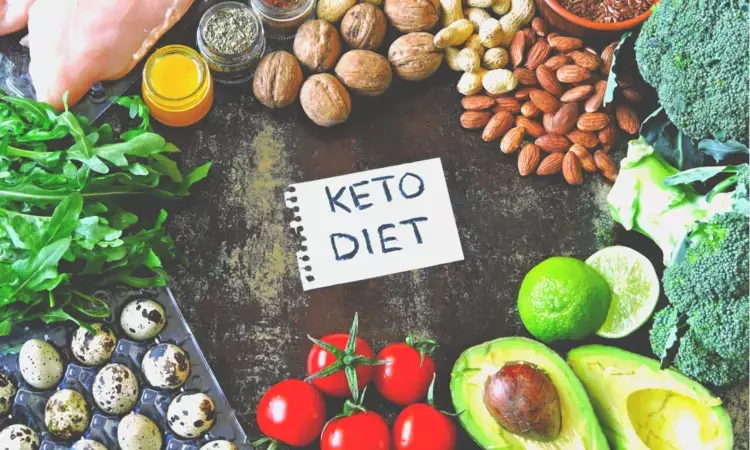- Home
- Medical news & Guidelines
- Anesthesiology
- Cardiology and CTVS
- Critical Care
- Dentistry
- Dermatology
- Diabetes and Endocrinology
- ENT
- Gastroenterology
- Medicine
- Nephrology
- Neurology
- Obstretics-Gynaecology
- Oncology
- Ophthalmology
- Orthopaedics
- Pediatrics-Neonatology
- Psychiatry
- Pulmonology
- Radiology
- Surgery
- Urology
- Laboratory Medicine
- Diet
- Nursing
- Paramedical
- Physiotherapy
- Health news
- Fact Check
- Bone Health Fact Check
- Brain Health Fact Check
- Cancer Related Fact Check
- Child Care Fact Check
- Dental and oral health fact check
- Diabetes and metabolic health fact check
- Diet and Nutrition Fact Check
- Eye and ENT Care Fact Check
- Fitness fact check
- Gut health fact check
- Heart health fact check
- Kidney health fact check
- Medical education fact check
- Men's health fact check
- Respiratory fact check
- Skin and hair care fact check
- Vaccine and Immunization fact check
- Women's health fact check
- AYUSH
- State News
- Andaman and Nicobar Islands
- Andhra Pradesh
- Arunachal Pradesh
- Assam
- Bihar
- Chandigarh
- Chattisgarh
- Dadra and Nagar Haveli
- Daman and Diu
- Delhi
- Goa
- Gujarat
- Haryana
- Himachal Pradesh
- Jammu & Kashmir
- Jharkhand
- Karnataka
- Kerala
- Ladakh
- Lakshadweep
- Madhya Pradesh
- Maharashtra
- Manipur
- Meghalaya
- Mizoram
- Nagaland
- Odisha
- Puducherry
- Punjab
- Rajasthan
- Sikkim
- Tamil Nadu
- Telangana
- Tripura
- Uttar Pradesh
- Uttrakhand
- West Bengal
- Medical Education
- Industry
Ketogenic diet may improve hormonal imbalances associated with PCOS

Malaysia: A recent study published in the Journal of the Endocrine Society has shed light on the effects of the ketogenic diet on reproductive hormones in women with PCOS (polycystic ovary syndrome).
In the first-ever meta-analysis and systematic review of clinical trials on the association, ketogenic diets followed for 45 days to 24 weeks demonstrated improvements in serum sex hormone binding globulin (SHBG), serum free testosterone, and luteinizing hormone (LH)/follicle-stimulating hormone (FSH) ratio.
The researchers reported a possible association between the ketogenic diet and improvement in the levels of reproductive hormones in women with PCOS via a meta-analysis of the usable and available studies. They, however, note several limitations of the accessible literature, reducing the transferability and acceptability of these results to the general PCOS population.
They add, "These findings have important clinical implications, particularly for dieticians, gynaecologists, and endocrinologists, who should carefully plan and customize individual diet recommendations for women with PCOS."
Polycystic ovary syndrome is a complex multisystem disorder having a similar pathogenesis as other chronic diseases with genetic-environmental interaction. In women, PCOS remains the most common endocrine disorder. Recently, the ketogenic diet has made a comeback as a part of dietary and lifestyle modifications in PCOS patients. Previous studies have suggested its beneficial effects in reversing hormonal balance in PCOS patients but the evidence has been patchy and derived from small populations under varying conditions.
To address this, Karniza Khalid, Ministry of Health Malaysia, Kuala Lumpur, Malaysia, and colleagues aimed to pool evidence from clinical trials to study the effects of ketogenic diet on reproductive hormones (LH/FSH ratio, serum progesterone, free testosterone) and observe evidence of weight change.
For this purpose, the researchers searched online databases for clinical trials evaluating the effects of a ketogenic diet in established PCOS women consistent with the Rotterdam classification. They included single- or double-arm studies that included an outcome of interest. To screen potential articles and a designated investigator extracted data on study characteristics, two investigators worked independently to screen potential articles and evaluated the outcomes.
The authors reported the following findings:
- Following ≥45 days of intervention with a ketogenic diet among women with PCOS, significant improvement was observed in reproductive hormone levels, with reduced LH/FSH ratio (d −0.851), reduced serum free testosterone (d −0.223), and an increase in serum sex hormone binding globulin (SHBG) (d 9.086).
- Significant weight loss was unanimously observed in all included studies (d −11.56).
"Short-term ketogenic diet potentially improved hormonal imbalances commonly associated with PCOS," the researchers wrote.
"The results are interesting and useful to formulate a hypothesis but they must be interpreted with caution due to the small number of subjects investigated," they concluded.
Reference:
Khalid, K., Apparow, S., Mushaddik, I. L., Anuar, A., Rizvi, S. A., & Habib, A. (2023). Effects of Ketogenic Diet on Reproductive Hormones in Women With Polycystic Ovary Syndrome. Journal of the Endocrine Society, 7(10). https://doi.org/10.1210/jendso/bvad112
Dr Kamal Kant Kohli-MBBS, DTCD- a chest specialist with more than 30 years of practice and a flair for writing clinical articles, Dr Kamal Kant Kohli joined Medical Dialogues as a Chief Editor of Medical News. Besides writing articles, as an editor, he proofreads and verifies all the medical content published on Medical Dialogues including those coming from journals, studies,medical conferences,guidelines etc. Email: drkohli@medicaldialogues.in. Contact no. 011-43720751


